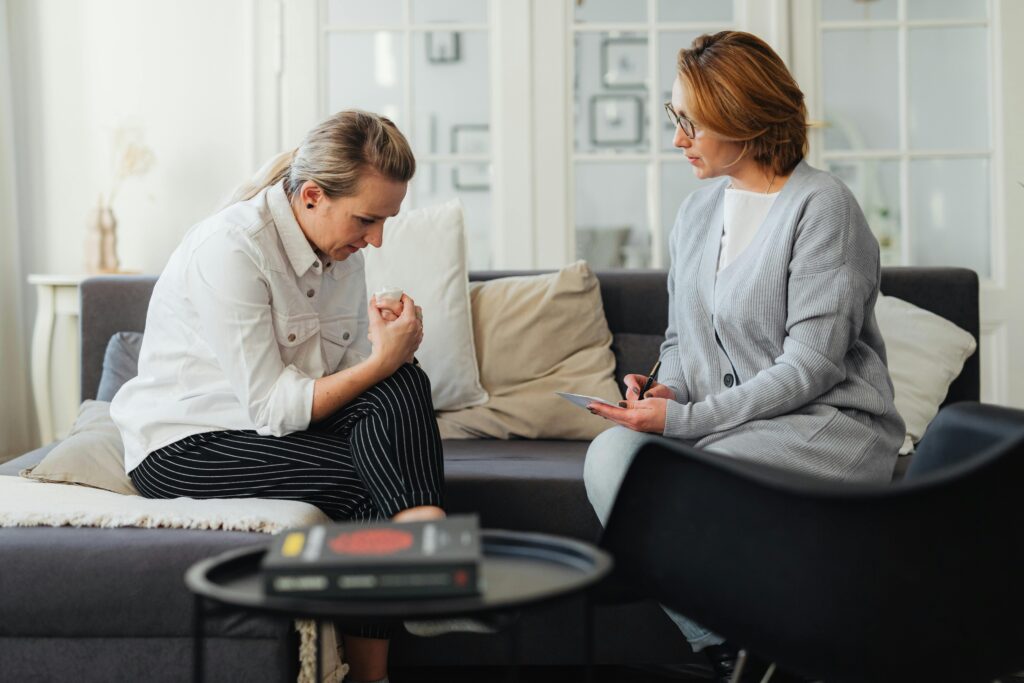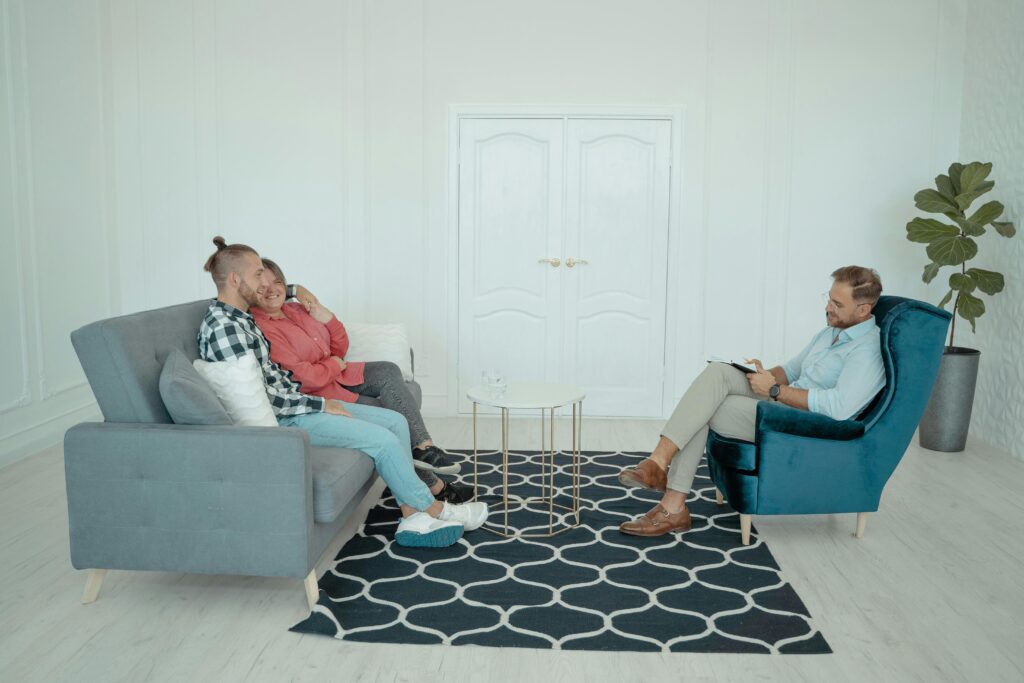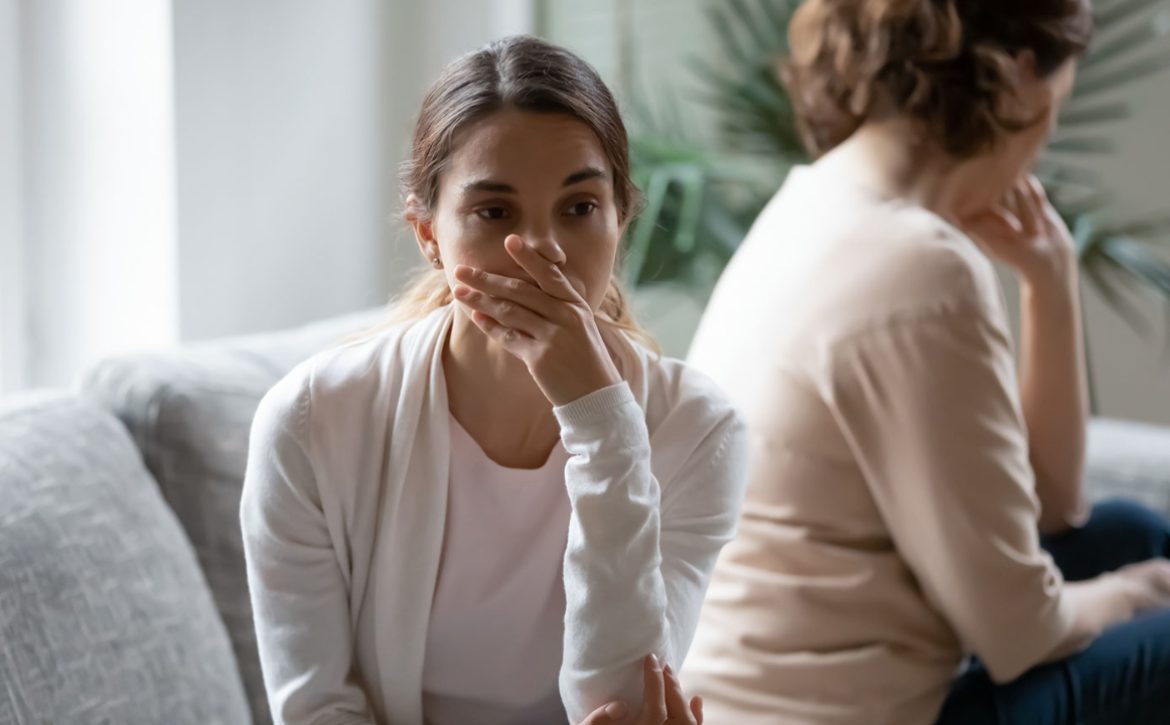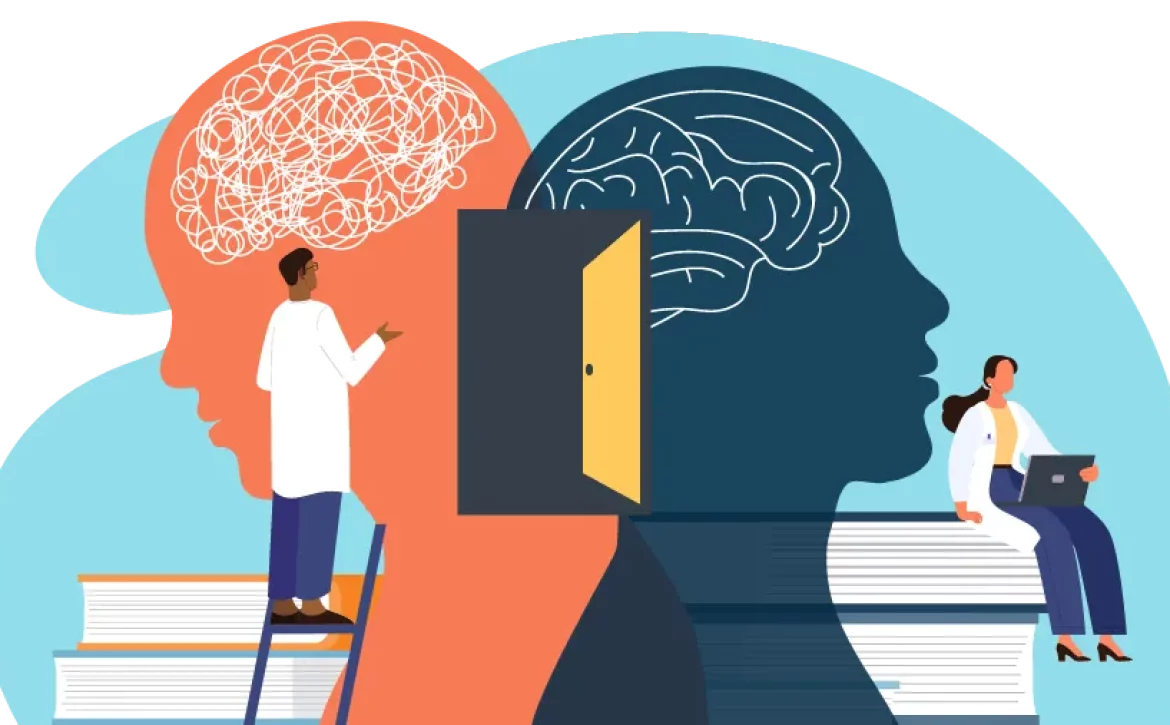Signs and Symptoms of Bipolar Disorder
Bipolar disorder is a complex mental health condition that affects millions of people worldwide. Characterized by dramatic shifts in mood, energy, and activity levels, it can significantly impact a person’s ability to function in their daily life. Recognizing the signs and symptoms of bipolar disorder is crucial for getting the right treatment.
At Novu Wellness, our specialists help you manage bipolar disorder through personalized treatment plans, therapy, and ongoing support. In this article, we will explore the various signs and symptoms of bipolar disorder, how it is diagnosed, and the effective treatment options available.
What Is Bipolar Disorder?
Bipolar disorder, also known as manic-depressive illness, is a mental health condition that causes extreme mood swings. These swings include emotional highs, known as manic or hypomanic episodes, and lows, which are depressive episodes. In fact, mood swings are one of the best-known signs and symptoms of bipolar disorder.
These mood changes can be severe and disrupt daily functioning, making it difficult for individuals to maintain relationships, hold jobs, or stay engaged in routine activities.
There are several types of bipolar disorder, each with its own unique characteristics. Recognizing these different forms and their symptoms is essential for proper diagnosis and treatment.
Types of Bipolar Disorder
Bipolar disorder is not a one-size-fits-all diagnosis. It comes in various forms, each of which presents differently:
Bipolar I Disorder
Bipolar I is defined by the presence of at least one manic episode that lasts for at least seven days or is so severe that hospitalization is required. These manic episodes are often followed by depressive episodes that can last for weeks. People with Bipolar I may also experience periods of normal mood in between episodes.
Bipolar II Disorder
Bipolar II involves hypomanic episodes, which are less intense than full-blown mania, and major depressive episodes. While the manic symptoms are less severe, the depressive episodes in Bipolar II can be just as debilitating, if not more so.
Cyclothymic Disorder
Cyclothymic disorder is characterized by periods of hypomanic symptoms and depressive symptoms that don’t meet the full criteria for Bipolar I or II. These mood swings are less severe but are chronic and can last for at least two years (one year in children and teens).
Other Specified and Unspecified Bipolar Disorders
These categories include individuals who experience significant mood disturbances but don’t fit the specific diagnostic criteria for Bipolar I, II, or Cyclothymic Disorder.
Manic Episodes: Recognizing the Signs
Manic episodes are among the most understood signs and symptoms of bipolar disorder, particularly in Bipolar I. During a manic episode, individuals experience heightened energy, creativity, and euphoria. However, these episodes can also lead to risky behavior, irritability, and impaired judgment.
Common Symptoms of Manic Episodes Include:
- Increased Energy and Hyperactivity: Individuals may feel an overwhelming surge of energy, often engaging in numerous activities at once, even with little to no sleep.
- Grandiosity: A person may experience an inflated sense of self-importance, believing they have special powers or abilities.
- Risky Behaviors: Manic episodes can lead to impulsive decisions, such as spending large sums of money, engaging in risky sexual behavior, or making reckless business decisions.
- Irritability or Agitation: While some people experience euphoria during manic episodes, others may become highly irritable or aggressive, particularly when others try to intervene.
- Racing Thoughts and Rapid Speech: People may have trouble focusing as their thoughts race from one idea to the next. Their speech may become rapid and difficult for others to follow.
Manic episodes can be dangerous because they impair a person’s ability to make sound decisions. At Novu Wellness, we help individuals manage manic episodes through therapy, medication, and a structured treatment plan.
Depressive Episodes: The Other Side of Bipolar Disorder
While manic episodes are one extreme of bipolar disorder, depressive episodes represent the other. These episodes can be just as disruptive, often leaving individuals feeling hopeless, exhausted, and uninterested in life.
Common Symptoms of Depressive Episodes Include:
- Persistent Sadness or Hopelessness: Individuals may feel an overwhelming sense of sadness or emptiness, often for weeks or months at a time.
- Loss of Interest in Daily Activities: Hobbies and activities that once brought joy no longer hold any appeal.
- Fatigue and Low Energy: Simple tasks like getting out of bed or preparing a meal can feel exhausting.
- Changes in Sleep and Appetite: Some individuals may sleep too much or too little, while others experience changes in appetite, either overeating or losing interest in food altogether.
- Feelings of Worthlessness or Guilt: Depressive episodes often bring on intense feelings of guilt or shame, even without a clear reason.
- Suicidal Thoughts: In severe cases, individuals may experience thoughts of death or suicide. This is a medical emergency, and immediate intervention is required.
Depressive episodes can be debilitating and, in some cases, life-threatening. At Novu Wellness, we provide comprehensive support for individuals struggling with bipolar depression, offering both medication management and therapy.
What Is Hypomania? Recognizing Milder Mania
Hypomania is a less severe form of mania, often seen in people with Bipolar II disorder. While hypomania doesn’t cause the same level of impairment as full-blown mania, it can still lead to problematic behaviors and difficulties in relationships.
Common Symptoms of Hypomania Include:
- Increased Productivity and Energy: People may feel unusually energetic and productive, often taking on more tasks than they can realistically handle.
- Heightened Mood: Hypomania can cause individuals to feel euphoric or overly optimistic, often leading to poor decision-making.
- Reduced Need for Sleep: Despite feeling energized, individuals may sleep only a few hours a night without feeling tired.
- Impulsivity: Hypomanic individuals may engage in impulsive behaviors, such as spontaneous trips or unwise financial decisions.
Because hypomania is less severe, it can go unnoticed or be mistaken for high-functioning behavior. At Novu Wellness, we work to identify and treat hypomanic symptoms early before they escalate. Our specialists recognize all the signs and symptoms of bipolar disorder.
Mixed Episodes and Rapid Cycling in Bipolar Disorder
Bipolar disorder can present in even more complicated ways, such as mixed episodes and rapid cycling.
Mixed Episodes
A mixed episode involves symptoms of both mania and depression simultaneously. This combination can be particularly distressing, as individuals may feel agitated and energetic while also feeling deeply hopeless or sad. Mixed episodes are difficult to manage without professional care, as the symptoms often conflict, making it hard to find relief.
Rapid Cycling
Rapid cycling occurs when an individual experiences four or more episodes of mania, hypomania, or depression within a single year. People who experience rapid cycling may feel emotionally exhausted, as the frequent mood changes leave little room for stability.
At Novu Wellness, we offer specialized treatment for those with mixed episodes or rapid cycling, providing the support needed to regain control over their mood fluctuations.
Early Warning Signs and Symptoms of Bipolar Disorder
Recognizing the early warning signs of bipolar disorder is key to receiving timely treatment. While the symptoms may vary, some common early signs include:
Common Early Warning Signs Include:
- Mood Swings: Rapid and unexplained shifts between feeling elated and feeling depressed.
- Sleep Disturbances: Individuals may sleep much more or much less than usual.
- Impulsivity: Engaging in risky or reckless behavior without considering the consequences.
- Changes in Productivity: Alternating between periods of extreme productivity and periods of inactivity or inability to complete tasks.
- Difficulty Maintaining Relationships: Frequent mood swings can strain personal and professional relationships.
At Novu Wellness, we help individuals and their families recognize these early signs and provide the necessary intervention to prevent symptoms from worsening.
Bipolar Disorder in Children and Teens
Bipolar disorder is often diagnosed in adulthood, but it can also affect children and teens. Recognizing bipolar disorder in younger individuals can be challenging, as the symptoms often overlap with other conditions like ADHD or conduct disorders.
Symptoms of Bipolar Disorder in Children and Teens Include:
- Severe Irritability: Children may experience extreme irritability and anger, which is more intense than a typical temper tantrum.
- Unpredictable Mood Swings: Mood swings in children may occur rapidly, sometimes several times a day.
- Behavioral Issues: Difficulty following rules, aggressive behavior, or frequent defiance may be signs of an underlying mood disorder.
Early diagnosis is critical for children and teens with bipolar disorder. At Novu Wellness, we provide family-centered care to help young individuals and their parents manage this complex condition.
Diagnosing Bipolar Disorder
Diagnosing bipolar disorder requires a comprehensive evaluation by a mental health professional. At Novu Wellness, our diagnostic process includes:
Steps in Diagnosing Bipolar Disorder:
- Clinical Interviews: We conduct in-depth interviews to assess mood patterns, behavior, and medical history.
- Symptom Tracking: Patients may be asked to keep a mood diary to help identify patterns of mania, hypomania, or depression.
- Family History: Since bipolar disorder can run in families, we assess the individual’s family history to look for genetic factors.
- Ruling Out Other Conditions: Bipolar disorder shares symptoms with other mental health conditions, such as ADHD or major depression, so it’s important to rule out other diagnoses.
Once a diagnosis is made, we work with each individual to create a holistic treatment plan that addresses their specific needs.
Treatment Options for Bipolar Disorder
At Novu Wellness, we offer a range of evidence-based treatment options to help individuals manage their bipolar disorder and live balanced, healthy lives.
Effective Treatment Options Include:
- Medication Management: Medications such as mood stabilizers, antipsychotics, and sometimes antidepressants are used to help regulate mood swings.
- Therapy: Cognitive Behavioral Therapy (CBT) and Dialectical Behavior Therapy (DBT) are commonly used to help individuals develop coping strategies and improve emotional regulation.
- Holistic Approaches: We also integrate mindfulness, yoga, and nutrition counseling to support overall well-being.
- Ongoing Support: At Novu Wellness, we provide continuous care through regular follow-up appointments, therapy sessions, and support groups.
Our goal is to help individuals manage their bipolar disorder effectively, allowing them to lead fulfilling and stable lives.
How Novu Wellness Can Help
At Novu Wellness, we understand how challenging bipolar disorder can be, but we believe that with the right support, it is manageable. We offer personalized treatment plans that cater to each individual’s unique symptoms and challenges. Whether you’re experiencing mania, depression, hypomania, or mixed episodes, our team of licensed professionals is here to help.
Our comprehensive care includes:
- Therapy: To help individuals develop coping strategies and manage symptoms.
- Medication Management: To regulate mood and prevent extreme highs and lows.
- Holistic Approaches: Including mindfulness, yoga, and nutrition to support mental and physical health.
- Family Support: We offer family therapy and education to help loved ones support the individual’s recovery.
If you or a loved one is struggling with bipolar disorder, contact Novu Wellness today to schedule a consultation and start your journey toward better mental health.


















